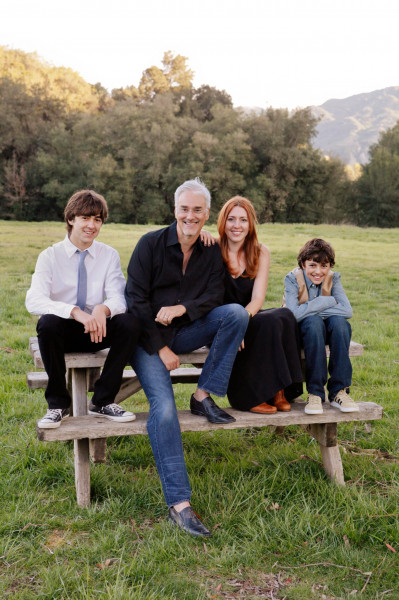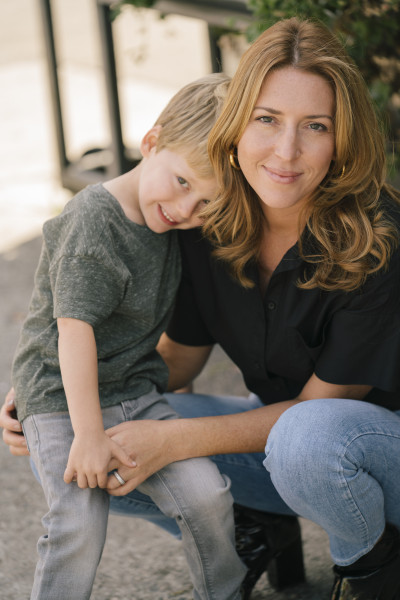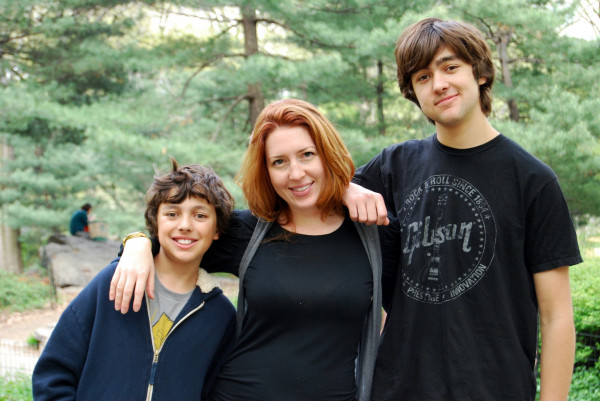Exclusive Interview with Jessica Butler
For this article, I had the amazing pleasure of interviewing Jessica Butler, who is the creator and editor of the blog Raise Magazine. Jessica is both a stepmother and adoptive mother, and she creates content on her blog for modern, nontraditional mothers that are going through the same situations, including content she herself wishes she had as she was going through her stepparenting journey. In this exclusive interview, we talk all about Raise Magazine, nontraditional motherhood, the stigma that stepmothers often face in real life as well as in the media, and all about adoption.

What inspired you to create Raise Magazine?
Jessica: My children. I’m a stepmom and adoptive mom, and I wanted to create a resource for families that look like mine, who are not being represented in mainstream parenting magazines. And I want my children to live in a world where their nontraditional family is as celebrated and respected as traditional ones.
It’s really great to see and hear about a magazine that’s made for nontraditional motherhood! Can you tell us more about the nontraditional mother’s that you feature in Raise Magazine?
Jessica: We create content for stepmoms, adoptive and foster mothers, single parents, and families built through surrogacy. We’re working to extend our resources to LGBTQ families as well, who are equally underserved in the parenting space.
Being a stepmother and adoptive mother is not the same as being a biological mom. It’s not less than (or better than), but it’s different. There are different challenges and conversations and relationships to navigate. Most parenting publications are still catering to traditional, biological moms.
Do you have nontraditional mothers reaching out to you for advice on stepparenting and adoption now that you have Raise Magazine up and running?
Jessica: I do. Even before I launched Raise, I received a lot of messages asking for advice and friends saying, “Where are the other people who are experiencing what I’m going through?” We receive more private messages than comments due to privacy concerns. There is often a birth mother or a spouse’s ex involved, and it’s not something people want to put in the comments section.
Yeah, like not wanting to offend the other person if they were to read about it.
Jessica: Exactly. Certain issues come up over and over in conversations, and those are the ones we address in blog posts. I’ve received a lot of messages asking how to tell children they are adopted, and how to talk to them about a birth parent’s addiction. We’re putting together advice from professionals to help parents address those issues.

Speaking about your posts for your magazine, are they mainly the questions that nontraditional parents ask you, or do you also come up with your own posts?
Jessica: It’s a combination of both. Most of the topics are things I’m passionate about addressing, but occasionally I get the same question several times, which inspires me to add it to our topic list.
A lot of the posts are about things that I’ve dealt with in my personal life, that I know are relatable to other people in my position. We also do product round-ups specifically for nontraditional parents. If you’re putting together a baby registry for an adoptive or foster mom who may become a mother overnight, you don’t want to include a diaper pail that takes four weeks to ship. We feature things you can get at Target the day your baby is born. Many of us get the call that our baby is here and has nothing in the way of gear.
One of our upcoming posts features adoption birth announcements, which are few and far between. We’ve done articles like “What Do Your Stepchildren Call You?” “Are You Friends with Your Child’s Birth Parent on Social Media?” Crowdsourcing is really important to bring in a variety of views and experiences.

Living out in Los Angeles, do you see and meet more nontraditional families who know about adoption and stepparenting?
Jessica: Shockingly, no. Even in L.A., stepmothers are by and large considered nonmothers. Outsiders expect and often thrive on stories of drama in blended families. We have a long way to go in redefining the “typical” family structure.
You wouldn’t think that out in L.A. there would be so much criticism when it comes to nontraditional parenting.
Jessica: It’s the same way with adoption. A lot of people are still unfamiliar with what open adoption means. You’d expect it to be common knowledge in a place as progressive as L.A., but there’s still a lot of education that needs to be done. We have to remember that open adoption is relatively new, and it needs to be talked about more. Even those of us within the triad is still learning how to navigate it.
Can you tell our readers about your family?
Jessica: My husband is 19 years older than I am and only 3 years younger than my mom. I’m closer in age to my stepsons than I am to my husband, yet we have a very traditional parent/child relationship. They were 8 and 13 when my husband and I got married and are now 21 and 26. Seven years into our marriage, we adopted our youngest son, Levon.

What was your adoption journey like?
Jessica: It was pretty straightforward. The first thing I did was reach out to friends who had experienced adoption to seek advice and ask for referrals. We eventually landed on an agency based in L.A., that walked us through the adoption process. Our son was unexpectedly born ten weeks early, so part of the experience was quite chaotic.
Wow, so you really had to get prepared quicker than expected!
Jessica: Yes. Adopting a preemie is another interview in itself.
What led to your decision to adopt Levon?
Jessica: “My mother was adopted, and it was always part of how I planned to grow my family. We’re lucky enough to be in an open adoption with my son’s birth grandparents. For Levon, his adoption will always be open and normal to him. There will be difficult questions to answer as he gets older, but we approach them in age-appropriate terms. He knows he has two mommies—I and his birth mommy—just like his brothers have a mommy and a stepmom.
It’s inspiring to see how supportive you are about open adoption, and it’s great to see that you want your son to know where he comes from.
Jessica: I will always support my son in his choice to have a relationship with his birth family. As a stepmother, I understand that a child can have two mothers and that it’s not a competition. Every parent plays a unique role in their child’s life.
Media reinforces the idea that blended families can’t coexist peacefully. The portrayal is so unfortunate. And don’t get me started on the negative portrayal of adoptees and foster children. It’s such a disservice.
Like how the social workers are the “bad guys”?
Jessica: And foster youth are “troubled children.”
There’s just so much stigma behind that.
Jessica: People who haven’t experienced adoption for themselves view it through the lens of what they see on television, which is often negative. Same with stepparenting. Name a movie or a TV show where the stepmother is celebrated and the biological mother isn’t dead. Media has made such huge strides in their portrayal of the LGBTQ community, which I absolutely applaud, but adoption, foster care, and blended families are still completely underserved and offensively portrayed. It’s something I’d like to change moving forward by producing shows that feature positive portrayals of nontraditional families.
To learn more about Jessica Butler and Raise Magazine, you can go to this link.
You can also follow Raise Magazine on social media.
Are you and your partner ready to start the adoption process? Visit Adoption.org or call 1-800-ADOPT-98 to begin your adoption journey. We have 130+ years of adoption experience and would love to help you.







